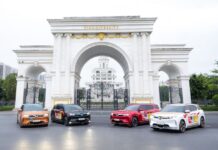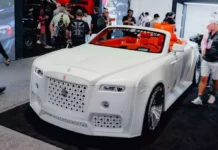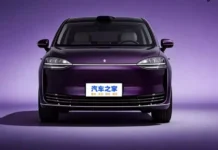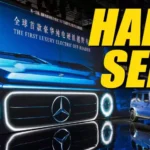The Russian automotive industry faced a significant downturn last March, with a staggering 45% year-on-year decline in sales, amounting to just 83,000 vehicles. This slump extends a troubling trend, as the year-to-date sales for 2025 are down 26% compared to the previous year, totaling 254,000 units, according to the Association of European Businesses (AEB).
March’s performance marks one of the sector’s three most severe downturns in the last decade, following closely behind the sales shock of March 2022 (a 59% drop) and the early-2015 crisis (a 36% decline).
The industry’s outlook is further clouded by consumer sentiment, as Alexey Kalitsev, Chairman of the Committee of Automobile Manufacturers of Russia, describes a state of “waiting” among consumers, hoping for the return of major brands that have exited the market. However, the opposite is occurring, with a systematic and pronounced withdrawal.
Kalitsev warns that if this downward spiral persists, the domestic automotive industry could plunge into a full-blown crisis, necessitating emergency support from the state.
The exodus of global automotive brands from Russia is no longer a temporary phenomenon. Ford, BMW, Toyota, Mercedes-Benz, and Lamborghini, among others, have ceased production, liquidated assets, and withdrawn their personnel. Some companies have even offered severance packages to their employees, indicating no immediate plans for a comeback.
In tandem, international sanctions continue to exert immense pressure on supply chains, finances, and the ability of remaining businesses to sustain their operations.
Russia’s automotive sector faces challenges beyond just sales figures. There is a looming threat of technology and component shortages, as well as a long-term investment drought in an industry heavily reliant on international collaboration. Even domestic automakers struggle with soaring costs and constrained supply, making production sustainability a daunting task.
As major global markets rebound post-pandemic and accelerate their electrification efforts, Russia’s automotive industry lags, hampered by inertia, lack of connectivity, and scarce investment capital.
The future appears uncertain for Russia’s automotive sector, demanding urgent solutions to counter the mounting pressures and ensure long-term viability.
PV (Tuoitrethudo)
The Rise of Chinese Automakers: Are German Car Brands Falling Behind in the World’s Largest Market?
Chinese consumers are shifting their preferences from German automobiles to local brands, which spells trouble for the likes of VW, Porsche, BMW, and Mercedes-Benz. This shift has resulted in a significant decline in sales for these German automotive giants in the massive Chinese market during the third quarter, and there’s no guarantee of a swift recovery.














































